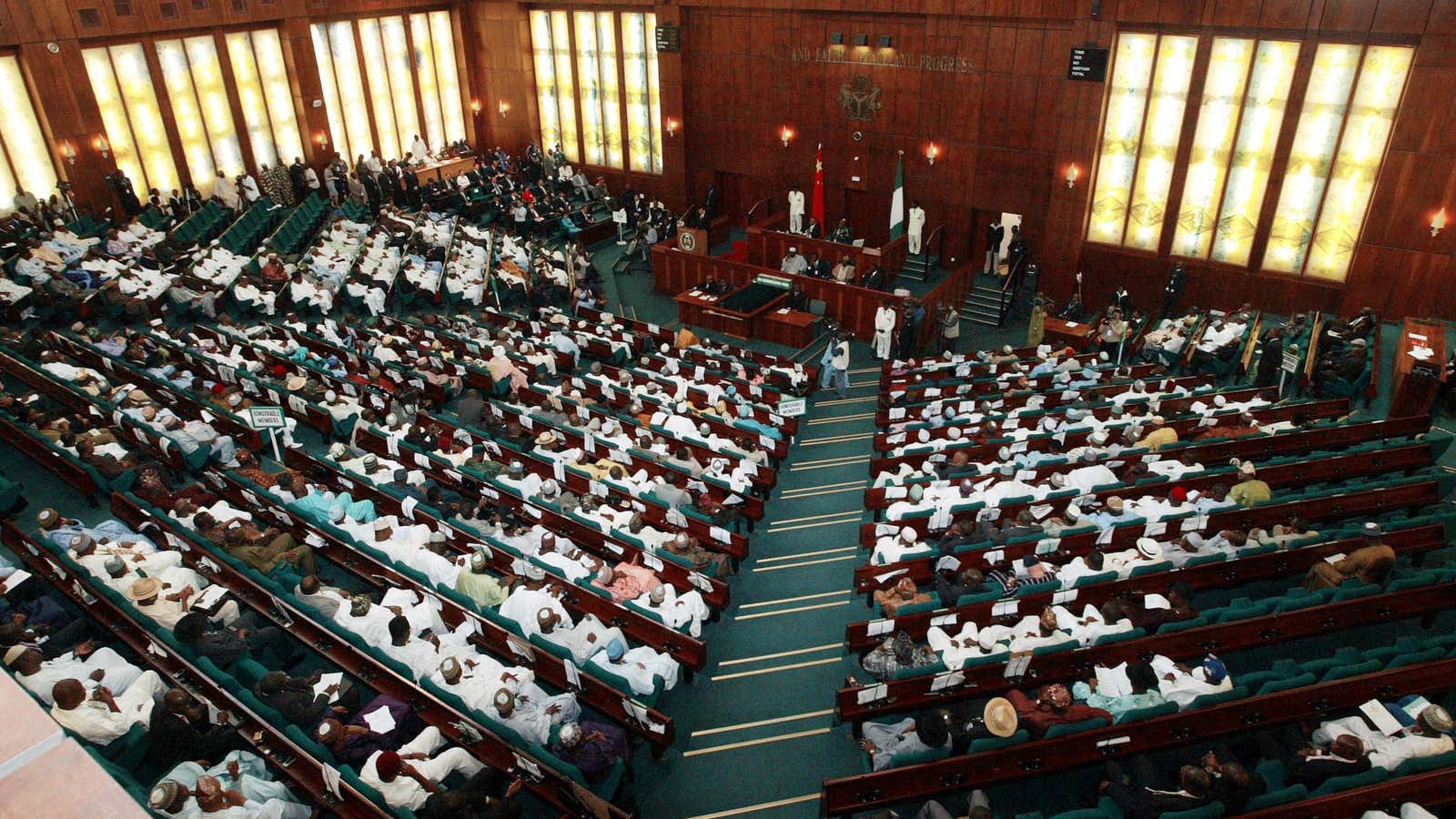Despite ultimately futile efforts to pass a bill that was seen as a pretext to censor Nigerians on social media, lawmakers in Nigeria are now taking advantage of the popularity of social media platforms to connect with more citizens.
After a test run last week, Nigeria’s senate has begun live-streaming its plenary sessions on Facebook, allowing anyone interested to follow the proceedings. For much of the past year, Nigerian lawmakers have stepped up efforts to embrace more technology. Last year, courtesy of a partnership with Facebook, lawmakers were trained on how to use the social network to engage their constituents more effectively.
Earlier this year, lawmakers also agreed to adopt an e-voting system to replace the existing system—which currently has lawmakers simply yell their support or opposition (yay or nay) to matters when votes are called for by the leadership of the House. The e-voting system, used for the first time last week, will track the voting records of members, which Nigerians will be able to access.
Lawmakers have said the technology will provide “parliamentary accountability,” but there’s one area in need of more transparency which the latest innovations do not address. For years the senate’s own finances have remained opaque despite Nigerian lawmakers being among the world’s highest paid.
Much of the feedback from citizens who’ve watched the sessions involve complaints about the quality of the audio while live-streaming, but it might be worth keeping an eye on the sessions anyway. As history has shown, sessions in Nigeria can get pretty heated.
